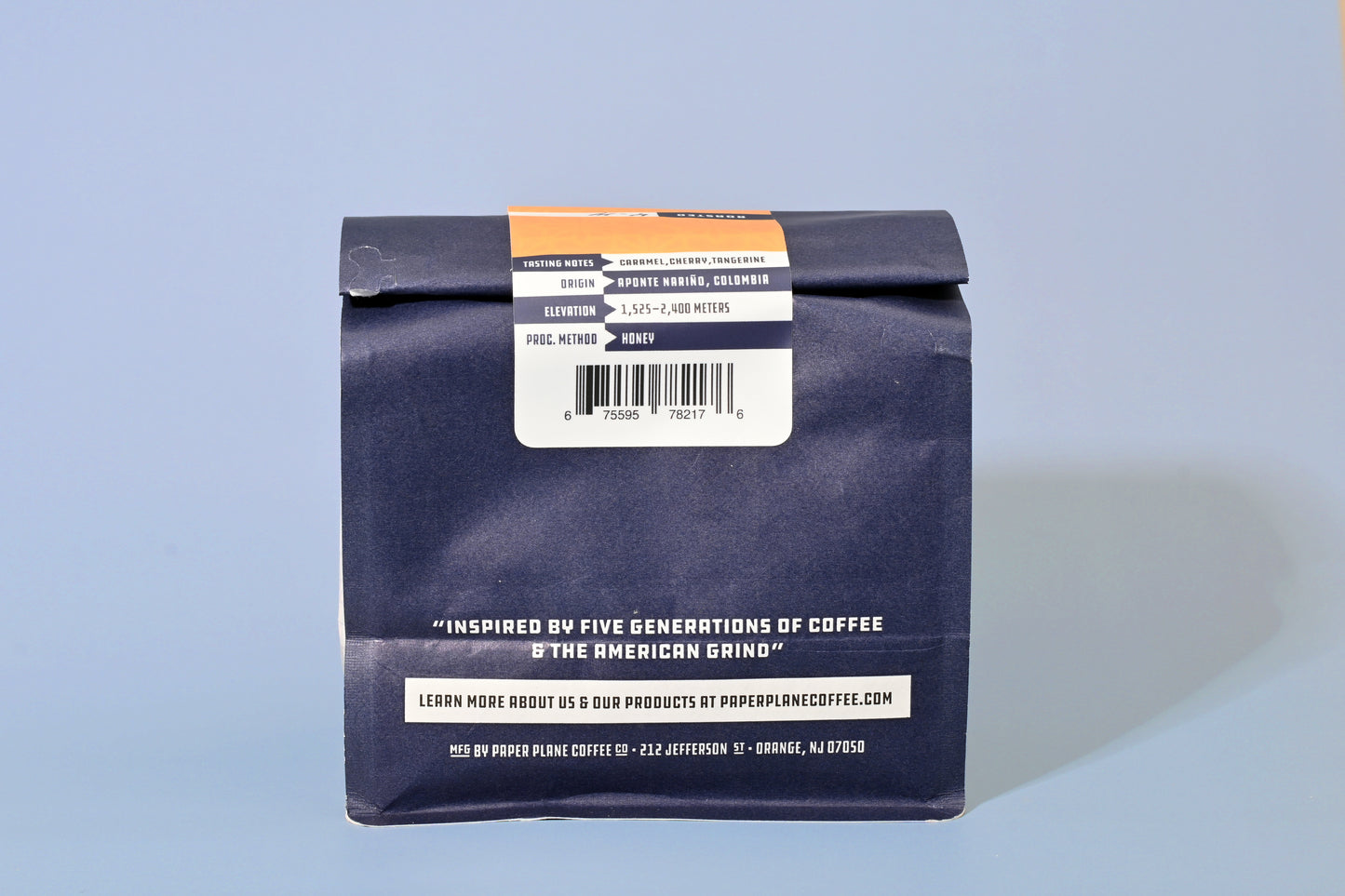Paper Plane Coffee Co.
APONTE, HONEY PROCESSED, NARIÑO, COLOMBIA
APONTE, HONEY PROCESSED, NARIÑO, COLOMBIA
Couldn't load pickup availability
NOTE: We offer the choice of ground coffee, however strongly believe our coffee is best enjoyed freshly ground before brewing. Good coffee grinders can be inexpensive and convenient.
TASTING NOTES
CARAMEL, CHERRY, TANGERINE
ORIGIN
COLOMBIA
REGION
NARIÑO
VARIETY
CATURRA, COLOMBIA
ALTITUDE
1,525 - 2400 METERS
PROCESS METHOD
HONEY, PATIO AND DRYING MACHINE
ABOUT
While Colombia is celebrated for its clean and consistent washed process coffees, this exceptional lot from Nariño invites you to experience a different side of the country’s coffee heritage—a side that’s sweeter, more textured, and profoundly rooted in tradition.
What sets this coffee apart is the honey process, a labor-intensive and delicate method that sits between the washed and natural styles. Unlike washed coffees, where the sticky mucilage is fully removed before drying, honey-processed beans are carefully left to dry with part of the fruit still clinging to them. In this case, the beans rest in their golden mucilage for an extended 20 to 45 days, transforming under the region’s crisp, cold mountain winds. These natural elements, combined with a mix of patio and mechanical drying, create ideal conditions for slow, even dehydration—resulting in a cup that bursts with the bright acidity of orange and raspberry, the juicy sweetness of red apple, and a comforting undercurrent of brown sugar.
The altitude, ranging from 1,525 to 2,400 meters, plays a critical role in flavor development. Coffee grown at these elevations matures more slowly, allowing sugars to concentrate within the bean and giving rise to the complex structure this cup offers. But it’s not just the climate and the process that make this coffee special—it’s the people.
This lot is grown by the Inga community, an Indigenous people whose ancestry can be traced back to the northernmost reaches of the Inca Empire, which expanded into the south of Colombia in the late 14th century. Unlike many modern agricultural systems, the Inga maintain a communal land structure, guided by a traditional cabildo—a council of elders tasked with preserving their customs, language, and spiritual connection to the land. Every decision made in the growing and processing of this coffee reflects centuries of inherited wisdom and stewardship.
In recent years, the region has endured devastating earthquakes and environmental instability, threatening both infrastructure and livelihood. In the face of these challenges, the Inga people have turned to specialty coffee as a path forward—a way to generate income while honoring the sacred relationship between culture, land, and crop. Investing in quality-driven, sustainable practices, they’ve built a model that brings global appreciation back to their corner of Colombia.
Share








